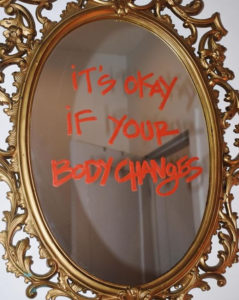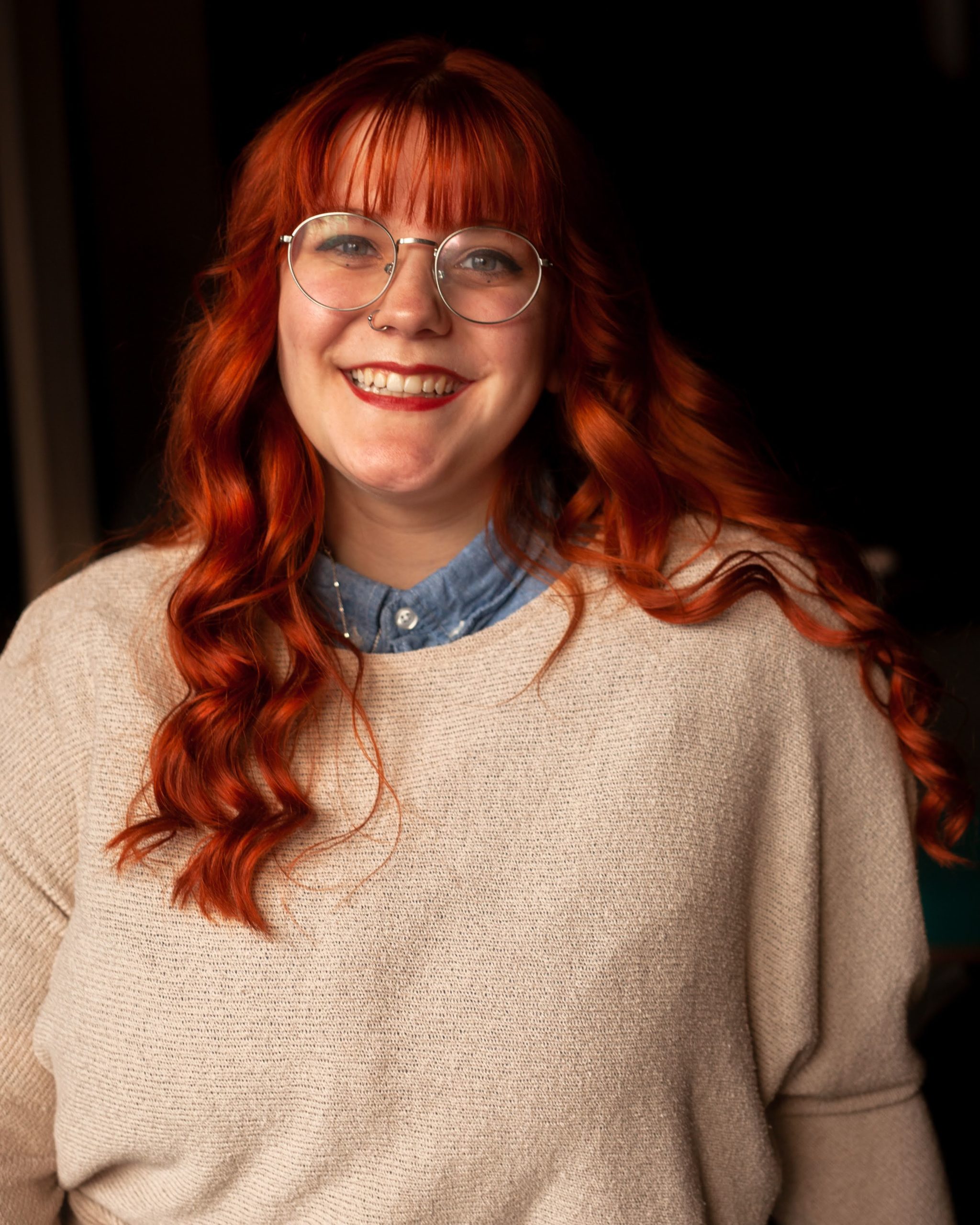I have been fighting eating disorders for the last ten years. Gratefully, these years have been filled with bouts of recovery, rehabilitation, relapse, and support, but life is undeniably different these days and recovery for me today does not look like it did for me back in January. And while I do my best to continue practicing my coping skills and daily schedule, it is hard to not notice the rampant diet culture being passed around social media. Between the overwhelming number of “quarantine workout challenges” or the fat-phobic conversations and jokes around getting a “quarantine body,” I needed to find out if I was the only one struggling and seek some advice.
Enter Christina Grasso, co-founder of The Chain, “an organization that provides peer support for women working in the fashion and entertainment industries who are struggling with or recovering from an eating disorder.” The Chain was founded around two years ago after Christina found an essay about recovering from an eating disorder that was written by co-founder Ruthie Friedlander. The two quickly became very close and supported each other strongly.

“We wanted to create something that could leave space for people in our industry that are struggling with an eating disorder,” Christina told me. “We also just want to support people in or out of a recovery program who may not have a safety net. We have become a resource to the [fashion, beauty, entertainment, and media] industry by reporting on and about eating disorders responsibly, approaching these conversations with a healthier mindset, being conscious of our language, and more.”
Amid the necessary physical distance that we’re experiencing right now, Christina is no stranger to the struggles of maintaining recovery. Isolation is a foundational characteristic of disordered eating and can be the first step to fostering unhealthy behaviors. Isolating to stop the spread of COVID-19 is absolutely necessary right now, but it does make it difficult when you aren’t able to be around those who can support you.
And, of course, being the social media icon that she is, Christina is unfortunately more-than-familiar with the many jokes about people gaining weight during this time and the incessant pressure for at-home workouts.
“You don’t have to listen to what the ‘fitness influencers’ are telling you right now,” she said, “and you don’t have to feel guilty about not listening to it.”

We also got the opportunity to talk about one of my favorite topics – self-care! There’s a massive consumer culture around self-care that tells us we need to have the fanciest face masks, most luxurious bath salts, and more widely inaccessible products that ultimately turn many people away from the practice of self-care, even when it is so essential to recovery. But we are here to tell you that self-care is an extremely simple, human practice that everyone has access to.
“It doesn’t have to be this extravagant ceremony,” Christina shared. “Self-care for me includes skin-care and baths, but it’s really based on drinking water, moving in ways that feel good, getting enough sleep when I can.”
Recovery from eating disorders looks so different between different people that it’s easy to think there’s a solution for everyone else but yourself; however, Christina had some sage wisdom to share on this subject.
“One of the most challenging aspects of recovery for so many is comparison. All recovery looks different so do not define your recovery by contrasting it with the recovery of someone else. It’s important for us to daily, if not hourly, to make the next best decision on what can set us up for honest self-love and success. These decisions look like pushing ourselves to practice self-care while also allowing self-forgiveness in this time that is strange and different in every way.”

While recovery does look different person-to-person, we wanted to share some of our favorite coping strategies and resources here for anyone that needs it. What works for us might work for you, and it might not, so don’t worry if some of these aren’t really your thing! What’s important is the active effort of coping, however that looks for you.
STRATEGIES AND RESOURCES WE USE
- Cleaning and organizing
- Listening to a podcast (our recommendations are The Next Right Thing, The Anthropocene Reviewed, Oprah’s SuperSoul Conversations, and Unlocking Us with Brene Brown)
- Talking on the phone or video-chatting friends or family
- Listening to an audiobook (our recommendations are The Power of Vulnerability by Brene Brown, Untamed by Glennon Doyle, and Hope in the Dark by Rebecca Solnit)
- Meditation and breathing exercises
- Move or don’t move! Both are great!
- Call the National Eating Disorders Association (NEDA) Helpline at (800) 931-2237
- Using the Crisis Text Line by texting HOME to 741741 for free, 24/7 crisis counseling.
- Practicing some dialectical behavior therapy by using the DBT workbook
- And, finally, listening to some music! Here’s a playlist made specifically with the intention of creating an environment of self-care and self-love, with song recommendations from Christina Grasso.
“It really is about taking it one day at a time and remembering that this is all temporary,” Christina said. “Try to find joy and levity in small moments.”
From all of us at Channel Kindness to you, take care of yourself. Be kind and be brave.




















